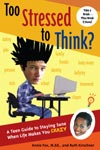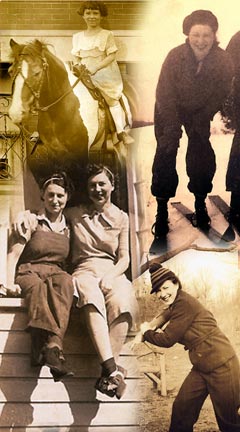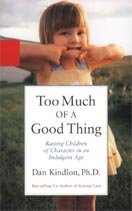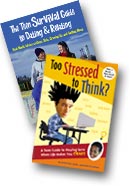Welcome to
Annie Fox's Parent Forum Newsletter

In this Newsletter
About this Newsletter
Since February 2005 Annie Fox’s Parent Forum Newsletter has helped parents and educators build healthier
relationships with teens and tweens. Each month this free newsletter offers parenting tips, book reviews, questions from
parents and kids about family issues, and a schedule of Annie’s live events.
Adults who live and work with teens deserve acknowledgement and support. So please forward this newsletter to
other parents and educators. Just started subscribing? Read any back
issues you’ve
missed in our archives.

Book News
SLJ reviews “Too Stressed to Think?”
The June 2006 issue of the School
Library Journal includes this review:
 “Gr
7 Up—This well-organized, upbeat book discusses what stress is and how it affects the body
and brain, talks about tools to reduce and control it, and gives suggestions for recognizing the myriad situations that
can trigger stress at home and at school and seeking help when necessary. Best of all, each one of these scenarios includes
information on how the situation might be addressed. Nice also are the tips that encourage readers to use breathing exercises
to calm and center themselves. Sprinkled throughout the book are quotes from teens on what works for them and what causes
them anxiety. Related helplines are appended. This volume is one of a number of other similar-themed books, but it is probably
safe to say that a school library, in particular, cannot have too many such titles. It may well be the one that strikes
the right cord with a distressed teen.” “Gr
7 Up—This well-organized, upbeat book discusses what stress is and how it affects the body
and brain, talks about tools to reduce and control it, and gives suggestions for recognizing the myriad situations that
can trigger stress at home and at school and seeking help when necessary. Best of all, each one of these scenarios includes
information on how the situation might be addressed. Nice also are the tips that encourage readers to use breathing exercises
to calm and center themselves. Sprinkled throughout the book are quotes from teens on what works for them and what causes
them anxiety. Related helplines are appended. This volume is one of a number of other similar-themed books, but it is probably
safe to say that a school library, in particular, cannot have too many such titles. It may well be the one that strikes
the right cord with a distressed teen.”
|
|

| New Press Coverage
On September 14th, Annie was featured in the Arizona Republic discussing how parents can help teens with
their misguided quest for popularity. Click
here to read the article.
Also, read Annie’s College Outlook article, Getting Real
about College Life.

October Parenting Article
Why Worry? Why Not?
by Annie Fox, M.Ed.
| “So we
worry, even though we know that it has no impact on anything except our stress levels and
our mental and physical well-being.” |
|
 My
mom grew up in New York City in the ’20s and early ’30s. The youngest of four spirited sisters,
she loved competition and she delighted in challenges. I’ve got photos of her on horseback, perched on window ledges,
skiing, and playing all kinds of sports. At 16 she passed a rigorous Red Cross Senior Lifesaving test. At 17, one of her
first jobs out of high school was working for legendary women’s reproductive rights activist Margaret
Sanger. And much later, faced with Lou Gehrig’s
Disease, my mom continued living her life with courage and a sense of humor that inspired her family and friends.
 While
she unflinchingly dealt with anything she encountered in the real world, including widowhood and single parenting,
she was often unglued by catastrophes that existed only in her imagination. No my mom was not psychotic, but she
was a worrier. I don’t say that out of any disrespect to her memory. I say it with the deepest compassion
because I know how much suffering her worrying caused her. While
she unflinchingly dealt with anything she encountered in the real world, including widowhood and single parenting,
she was often unglued by catastrophes that existed only in her imagination. No my mom was not psychotic, but she
was a worrier. I don’t say that out of any disrespect to her memory. I say it with the deepest compassion
because I know how much suffering her worrying caused her.
As 21st century parents, and as the adult children of our own aging parents, we’ve got valid stuff to worry
about. If worrying is going to move you to take action for change then that’s a good thing. But what about
the involuntary, cyclical fretting that leaves you pretty much paralyzed? How many of us wallow in that from time
to time? (I’m raising my hand here because as Dr. Phil often
says, “You can’t change what you don’t acknowledge.”) So we worry, even though we know that
it has no impact on anything except our stress levels and our mental and physical well-being. You know it’s
futile and unhealthy, but what can you do when your imagination fills your mental movie screen with disturbing
scenes? You never bought a ticket for this scary and irrational show. Watching it makes you feel powerless and
fearful. You hate it and yet you don’t know how to pull the plug on the blasted projector.
Continue reading the rest of the
article...

October’s Recommended Read
 Too
Much of a Good Thing: Raising Children of Character in an Indulgent Age Too
Much of a Good Thing: Raising Children of Character in an Indulgent Age
by Dan Kindlon, Ph.D.
I spend lots of time talking with tweens and teens from privileged circumstances. Through a mix of good
fortune, opportunities, and lots of hard work, their parents have created an extremely comfortable lifestyle
for them. Nothing wrong with being comfortable and sharing what you’ve earned with your family. Yet
recently there’s been a lot written about how these kids who have so much, are often unmotivated,
depressed, and directionless.
Personally, I don’t usually see that side of them. Sure, I get emails from kids who are dramatizing their life situations
(broken hearts, unfair parents, insensitive friends) but frankly, most of it seems like pretty normal adolescent stuff.
Since I’m not a therapist, I was interested in reading a different perspective. Too
Much of a Good Thing is a very solid book with a lot to offer its readers. Kindlon, a Harvard psychology
professor, knows his stuff. Kindlon’s earlier and equally excellent book, Raising
Cain: Protecting the Emotional Life of Boys was one of my prior recommended reads.
By surveying over 600 teens and nearly 1100 parents (all of whom are in the upper-middle to upper socioeconomic status)
Kindlon concluded that while the kids have “…full toy boxes” they seem to be lacking in what we call “character.” Sounds
harsh, but when the good professor analyzed the kids’ responses to his survey, there were irrefutable correlations
between their self-centeredness, inability to defer gratification, non-motivation, eating problems, and lack of self-control,
and certain aspects of the parenting they were getting. His conclusion: these kids are not developing positive character
traits because they’re over-indulged.
While indulging our kids comes from a loving intention, Kindlon says our motivation has nothing to do with their needs
and everything to do with ours. He indicates strongly that we rush in to make everything right because we’re
unwilling to see our kids deal with disappointment or frustration. How ironic as each of us knows that making our way through
obstacles is often exactly what it often takes to build “character.”
| “…Girls who say they’re ‘very spoiled’ are three times as likely to have driven drunk and
about twice as likely to have smoked marijuana in the past month. Boys who were ‘very spoiled’ were
also at higher risk for … lying, cheating, being anxious or depressed… and drunk driving.”
—Dan Kindlon |
Kindlon counsels parents in specific ways to reverse and prevent the behaviors his survey documented. All his tips focus
on what he calls “the holy trinity of child care”, T.L.C.: Time, Limits, and Caring. It’s not just common
sense. His research bears out the benefits: “…children in families that eat dinner together at least a few
times per week tend to be less depressed, have less permissive attitudes toward sex, are less likely to use drugs, and
are more likely to work to their intellectual potential in school.” Sounds pretty clear. So, what’s for dinner
tonight?
Check out my Recommended
Books here...
| |

|
Annie's Books
 As the fall schedule moves into high gear, why not equip your teens with some tools for dealing with popularity issues, bullying,
problems with friends, and the undeniable stress of being an adolescent in today’s world? My books help 12-18 year
olds navigate their way through these years, and any adult who wants to understand kids better should read them too. “The
Teen Survival Guide to Dating and Relating” and “Too
Stressed to Think? A teen guide to staying sane when life makes you CRAZY” (co-written
with Ruth Kirschner) are available here, or from Amazon or at your local bookstore. Order an autographed copy of
it directly from me and pay by credit card at our own online store. Order
your copy here! As the fall schedule moves into high gear, why not equip your teens with some tools for dealing with popularity issues, bullying,
problems with friends, and the undeniable stress of being an adolescent in today’s world? My books help 12-18 year
olds navigate their way through these years, and any adult who wants to understand kids better should read them too. “The
Teen Survival Guide to Dating and Relating” and “Too
Stressed to Think? A teen guide to staying sane when life makes you CRAZY” (co-written
with Ruth Kirschner) are available here, or from Amazon or at your local bookstore. Order an autographed copy of
it directly from me and pay by credit card at our own online store. Order
your copy here!
|

Letters from Parents and Teens about Family Problems
Why worry? Because kids make choices that are so outrageous that somebody needs to be worried enough about them to insist
on a course correction. Unfortunately, those kids’ parents are often the least concerned, which is probably why their
kids act out to begin with.
“Our neighbors’ kids crossed the line while pet-sitting for us.”
Dear Annie,
We recently moved here and needed to go out of town. I asked the neighbor if either of his sons (a middle schooler and
a high school student) would like to feed our cats while we were out of town. The dad said that one of his sons would take
care of it. When we arrived home, we discovered that someone had cooked in our home, left the pan in the sink, left the
unfinished food in our family room, watched TV (it was on a channel we never watch), drank a beer (it was in the trash
can), and drank almost all our cooking wine (really bad wine!!!). A glass from their home was left by our sink.
My husband and I are wondering what to do. I wanted to run over and ask which son I should pay for the pet sitting services,
and also return the glass. I wanted to phrase it this way so that in case it was one of the parents and not any of the
boys, then I would not have to worry about the alcohol. If it turns out it was one of the children, how do I advise the
parent that their son cooked, ate, and drank our alcohol?
In our old neighborhood, first, none of the kids ever helped themselves to anything while pet sitting for us and secondly,
if anything had been amiss, I was good enough friends with my neighbors that I could just tell them. I’m not sure
what to do here. If I were the parent, I would certainly Want to know what my children were up to, but I’m not sure
all parents want to hear those kinds of things. Any advice?
Shocked Neighbor
|
 |
Dear
Shocked Neighbor,
I hope you’ve gotten your house key back! It’s really difficult for me to imagine any responsible adult who
would do what you described. Frankly, I’m stunned that any middle or high school student would do it either. And
to leave such blatant evidence around, well... that’s just plain stupid on top of being audacious. Clearly a kid
did this and that kid needs to hear from his parents and from you as well that this was absolutely unacceptable behavior.
He’s got to apologize and make amends.
My suggestion is that you talk to the parents. Tell them that you’re appreciative of the care their son took of
your cats. And you want to thank the boy and pay him, but there was something else you need to talk about first. Then describe
exactly what you discovered when you got home. Afterwards, you might say, “We’re feeling a little upset about
all this and want to know what you think.”
Then LISTEN to what the parents have to say.
Any responsible parent is going to appreciate the information. If for whatever reason, the parent gets defensive then
you need to find a new pet sitter.
Your thoughts?
In friendship,
Annie
|
 |
Dear Annie,
Thanks for your quick reply. I want to give you an update. This afternoon I rang the bell when I knew the mom was home.
I returned her glass. She wasn’t surprised. I asked who mainly took care of the cats. She said they all went over
to take care of them. I asked more pointedly who took care of them Sunday night and she said she wasn’t sure. I mentioned
the beer and she said that her husband probably had the beer and then I mentioned the bad wine that I thought no adult
would consume and she asked if she could pay for it. I said no that I was more concerned if it was consumed by one of the
boys. She said she would look into it but didn’t seem stunned or angry. I was completely baffled. I was even more
stunned that her husband would have had the beer. Maybe it’s ok in this part of the world to just help yourself -
adult or child.
I tried.
Shocked Neighbor
|
 |
Dear Shocked Neighbor,
Wow, I’m stunned too. What an unbelievable response! Yes, you tried. And that’s all you can do. Brava to you
for your efforts and good luck finding more responsible pet sitters. I’m sure there are other parents in your new
neighborhood who share your values.
In friendship,
Annie
|
And sometimes it’s a parent’s behavior that has their own kids worrying and wondering what to do next?
“I just found out that my mom smokes!”
Hey Terra,
My mother smokes and she hasn’t told me. I found out and it hurts that she didn’t trust me enough to tell
me. I am 12, and have no desire to smoke or anything like that, but for some reason she doesn’t trust me. She doesn’t
know I know, but I want to tell her I do. What should I do?
Freakin’ Out
|
 |
Dear Freakin’ Out,
Did your mom just start smoking? Or is this an old habit that she’s picking up again? Maybe you don’t know
the answer to that. Either way, it may be that she’s smoking now because she’s under a lot of stress and she
doesn’t know healthier ways to deal with it.
You should definitely talk with her about this because clearly it’s bothering you. But before you have this conversation,
you need to know exactly how you feel about it.
You say that it “hurts” that she didn’t trust you enough to tell you. I understand that. But maybe the
fact that she’s hiding her nicotine habit has nothing to do with trust and everything to do with her concern that
you might model her unhealthy choice and become a smoker yourself. She must know that smoking isn’t good for her
health, and I’m sure she’d never want you to smoke.
You say you have “no desire” to do that, and I’m really pleased to hear you say that because it shows
that you have respect for your body and your health. But the truth is that if you’ve got a parent who smokes, you
are more likely to become a smoker.
My suggestion is that you educate yourself about cigarette
smoking. That includes the very real dangers of second hand smoke that comes from living with a smoker.
After you’ve gotten clear about your feelings and why smoking is such a bad habit, then talk to your mom about her
smoking. Often, when kids say that they’re worried about their parent’s health that wakes up the parent and
motivates her to change her behavior. I hope that happens with your mom.
In friendship,
Terra
|
Got a parent-teen problem you need help with? Click
here to Ask Annie
Read other parents’ questions here.
Read teens’ letters about parents here.
If you’re a teen and you need some help, click
here.

Upcoming Events
Over the next few months, Annie will be speaking at the following places. Click
here for Annie's full calendar of events. Click here for
a list of Annie's past events. Read what they're saying about Annie's presentations. If you want Annie to speak at your school, event, or conference, click
here.
| Date |
Description |
Location |
| 10/13/06 |
Girl Scout Council of Napa-Solano “Creating
and Maintaining Healthy Relationships” for
14-17 year old girls at Solano Juvenile Hall |
Fairfield, CA |
| 10/17/06 |
Archway School — Lower Campus Parent Education Night: “The Power of Advisory: Supporting social/emotional development at school and at home” |
Oakland, CA |
| 10/18/06 |
Archway School — Upper Campus
Parent Education Night: “The Power of Advisory: Supporting social/emotional development at school and at home” |
Berkeley, CA |
| 10/23/06 |
Nova School — “Don't Stress
About Stress”, a student assembly for 6th-8th graders |
Olympia, WA |
| 10/23/06 |
Nova School — Parent Education Night: “De-stressing
your middle schoolers and guiding them toward independence” |
Olympia, WA |
| 11/16/06 |
Barnes & Noble
Eastridge Mall — Public Event: “The Boyfriend/Girlfriend Zone” — author talk and
book signing. 7:30 pm. For info call 408-270-9470 |
San Jose, CA |
| 11/7/06 |
Women's Radio’s — Live interview
on Dr. Beth's Compassionate Parenting Program with host Dr. Beth Halbert, 4PM PST |
Internet |
| 11/18/06 |
Mill Valley Middle School’s Parent
Ed Workshop/Mini-conference — “Too Stressed to Think? How to stay clear-headed and compassionate even when your middle
schooler drives you crazy.” |
Mill Valley, CA |

Resources
Past Newsletters – read our archive of
past Parent Forum Newsletters.
Recommended Books – Annie
highly recommends these parenting books.
AnnieFox.com – includes parenting
tips, letters from teens
and parents, Parent Forum articles past and present, information about Annie’s
books, and workshops/seminars.
The InSite (www.TheInSite.org)
– created especially for teens who have ever thought about making a difference. The InSite provides
teens with the information, the inspiration, and many possible game plans so they can take charge of their choices
and their lives.

If this newsletter was forwarded to you
and you’d like to subscribe (free!), click
here.
|
|



 While
she unflinchingly dealt with anything she encountered in the real world, including widowhood and single parenting,
she was often unglued by catastrophes that existed only in her imagination. No my mom was not psychotic, but she
was a worrier. I don’t say that out of any disrespect to her memory. I say it with the deepest compassion
because I know how much suffering her worrying caused her.
While
she unflinchingly dealt with anything she encountered in the real world, including widowhood and single parenting,
she was often unglued by catastrophes that existed only in her imagination. No my mom was not psychotic, but she
was a worrier. I don’t say that out of any disrespect to her memory. I say it with the deepest compassion
because I know how much suffering her worrying caused her. 
